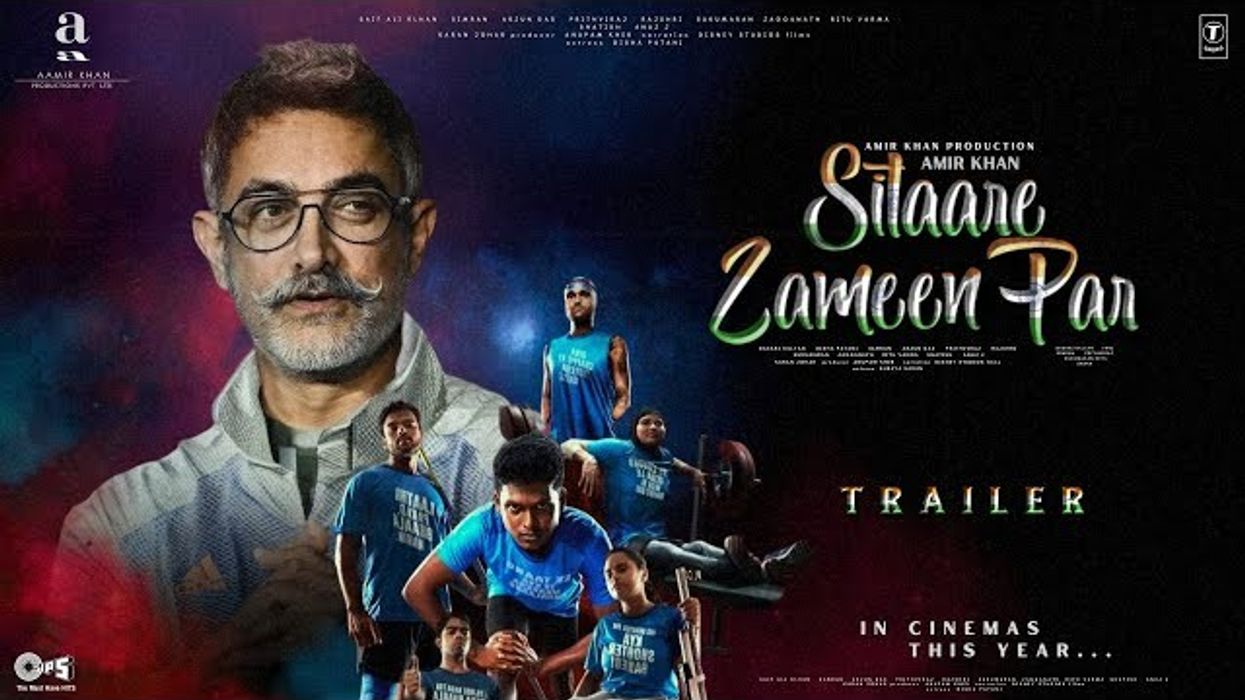Aamir Khan, one of Bollywood's most celebrated actors and filmmakers, has officially revealed that he has begun work on his long-awaited adaptation of the Mahabharat. For years, Aamir has expressed a deep passion for turning this legendary Indian epic into a film, and as he approached his 60th birthday, he has confirmed that work on this monumental project is finally underway.
Aamir Khan shares an exciting update
During a meet-and-greet with the paparazzi ahead of his milestone birthday, Aamir Khan gave fans the news they've been waiting for. When asked about his plans to adapt the Mahabharat for the big screen, he said, "I have just started. Just starting, putting the team together for the writing and all that, just started."
This announcement has rekindled excitement among fans and the film industry, given the scale of the project. The Mahabharat is one of India's most revered epics, rich with complex characters and storylines spanning generations. Aamir has long been intrigued by the challenge of bringing this timeless tale to the screen, and now that work has begun, there’s much anticipation about how the actor-director will execute this ambitious vision.
The challenge of adapting the Mahabharat
Aamir has always been known for taking bold and innovative approaches to his films, and adapting the Mahabharat is no small feat. The epic, which is longer than The Iliad and The Odyssey combined, covers vast thematic ground, exploring issues of duty, righteousness, family, and warfare. Given the complexity of the narrative, Aamir has chosen to start by putting together a writing team that will help shape the story for a cinematic adaptation.
While details about the film are scarce, it is clear that Aamir is taking a thoughtful, step-by-step approach to ensure the project is handled with the care and dedication it deserves. When asked about the film’s timeline, Aamir said, "It depends on how the first year of production goes," indicating that the film's completion could take up to five years, depending on the challenges of the initial development phase.
Reuniting with Bollywood’s Khans
During the same event, Aamir was also asked about his recent gathering with fellow Bollywood superstars Shah Rukh Khan and Salman Khan. The trio, often dubbed as the “three Khans” of Bollywood, have dominated the Indian film industry for decades. Their recent meetup sparked curiosity among fans, who speculated about potential collaborations or birthday celebrations, as all three actors are turning 60 around the same time.
Aamir, however, dispelled the rumours with a laugh, saying that the reunion was more personal than professional. “We were just gossiping about the media,” he joked before adding that it was a joyful evening spent reconnecting after a long time. Though the meeting wasn’t work-related, the image of the three Khans together sent fans into a nostalgic frenzy, reminiscing about their decades of friendship and contributions to Indian cinema.
Sitaare Zameen Par
While Aamir is focused on Mahabharat, he is also gearing up for the release of his next film, Sitaare Zameen Par, which is expected to hit theatres soon. Aamir has always chosen films with strong storytelling and emotional depth, and this latest project is no different. Sitaare Zameen Par has already generated a great deal of buzz, and fans are eager to see the actor’s return to the big screen after a brief hiatus.

Known for pushing the boundaries of Indian cinema, Aamir’s projects always bring something fresh and unique. His dedication to quality filmmaking has earned him immense respect, not only from his peers in the industry but also from audiences worldwide.
A new era for Aamir Khan
As Aamir Khan embarks on the journey of adapting Mahabharat, he marks a new chapter in his illustrious career. With decades of experience behind him and a reputation for tackling ambitious projects, Aamir is perfectly poised to bring this epic tale to life. His approach, as always, is one of careful planning, and his announcement of the project has left fans eagerly anticipating what could be one of the most significant films in Indian cinema history.
Though the road ahead may be long, Aamir’s commitment to his craft remains unwavering. As he prepares to celebrate his 60th birthday, he continues to inspire audiences with his vision and passion for storytelling. Whether through the upcoming Sitaare Zameen Par or the colossal undertaking of Mahabharat, Aamir Khan’s influence on Indian cinema is set to continue for years to come.





